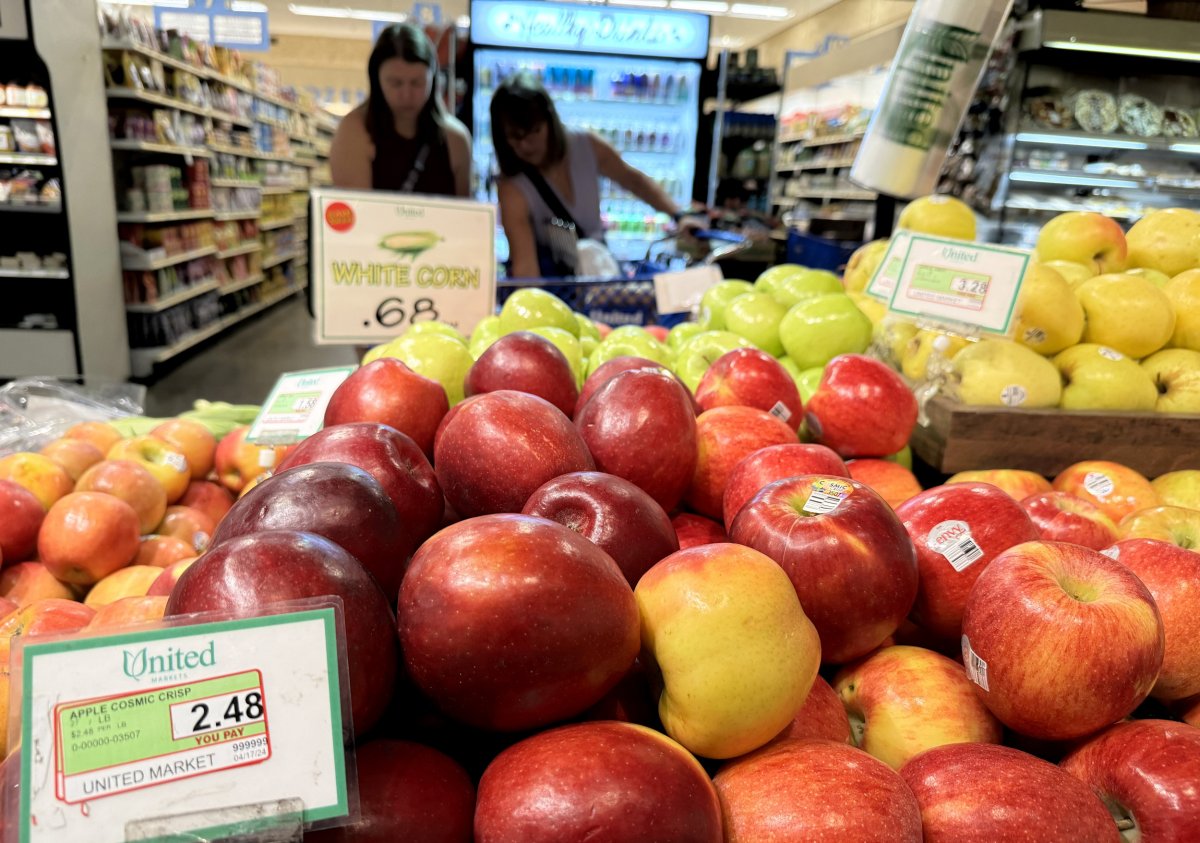People using weight loss drugs like Ozempic are saving hundreds of dollars on groceries each year, according to a new study.
Why It Matters
Ozempic and its peers, known as GLP-1 drugs, were initially produced to help people manage diabetes, but these drugs have become increasingly popular for medical weight loss. Proponents of these drugs say they can help users better manage their health, and in 2023 the obesity rate in the United States dropped for the first time in more than a decade.
The use of these drugs for weight management has drawn some controversy, however. Critics have raised concerns that their popularity has created a shortage for people who need the drugs to manage diabetes and say there are some long-term risks when using the drug for weight loss purposes.
What To Know
The study, conducted by Cornell University's SC Johnson College of Business, found that people using GLP-1 drugs save 5.5 percent on their groceries six months after first taking the drug. This translates to about $416 in grocery savings.

After six months, the amount of savings decreased but still remained "significant," according to the study, which was conducted by Cornell's Sylvia Hristakeva and Jura Liaukonyte and Numerator's Leo Feler.
"This partial reversal may be driven by factors such as compliance challenges, waning drug efficacy, or measurement limitations," the study says. "Anecdotally, some users report that the appetite-suppressing effects weaken over time, necessitating dosage adjustments to sustain efficacy."
People on GLP-1 drugs who have more than $125,000 are likely to spend less on groceries than those making less than that, according to the survey.
Chips, savory snacks and sweet bakery treats were the grocery categories that saw the largest decrease in spending among GLP-1 users, according to the survey. They spent slightly more on yogurt, fresh produce and meat snacks.
Hristakeva told Newsweek the researchers were surprised by several aspects of the study, including the magnitude of adjustments on grocery spending, particularly for higher-income shoppers.
"Another surprising finding to us was that most categories saw spending decreases, even for staples like cheese and eggs. This suggests that the effects of GLP-1 adoption extend beyond discretionary, calorie-dense purchases and influence overall grocery spending," she said.
Hristakeva also said the 5.5 percent figure is at the household level, meaning the "magnitude of the change is even greater on a per-person basis."
This data may prompt changes in the food industry. Companies might need to evaluate their product formulations, portion sizes and packaging strategies "to align with changing consumption patterns," the authors wrote.
Hristakeva said the reductions could lead to short-term sales declines for manufacturers and retailers that rely on the sales of snack foods and sweets.
The research findings echo comments made by Walmart CEO John Furner, who told Bloomberg News last year the retailer is seeing a "slight change" in grocery sales because of the rise in popularity of medical weight loss drugs.
What People Are Saying
Cornell's Sylvia Hristakeva told Newsweek: "Companies relying heavily on calorie-dense or processed products will likely reassess their product portfolios to remain competitive and adapt to these shifting consumption patterns."
Dr. Alexandra Sowa, author of The Ozempic Revolution, previously told Newsweek: "With the meteoric rise of these amazing medications, a lot of people are getting a prescription, but they're not getting all the information that goes along with success. There's a lot more that patients can do than just taking the injection."
Dr. Jonathan Kaplan, a board-certified plastic surgeon in San Francisco, previously told Newsweek: "These medications lower the body set weight, or 'weight thermostat,' so you feel full sooner. Without the medications, that body set weight increases again."
What Happens Next
Medial weight loss drugs may continue to grow in popularity in the new year. Other companies like AmGen are developing their own medical weight loss drugs.



















:quality(85):upscale()/2024/04/24/878/n/3019466/36c5693c662965c5d1ce91.72473705_.jpg)
 English (US) ·
English (US) ·